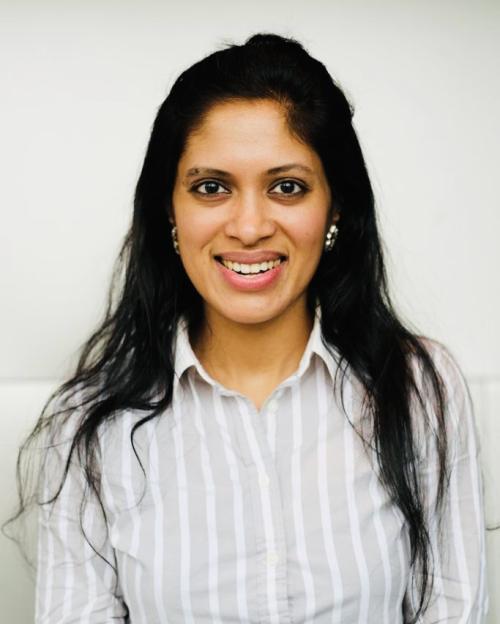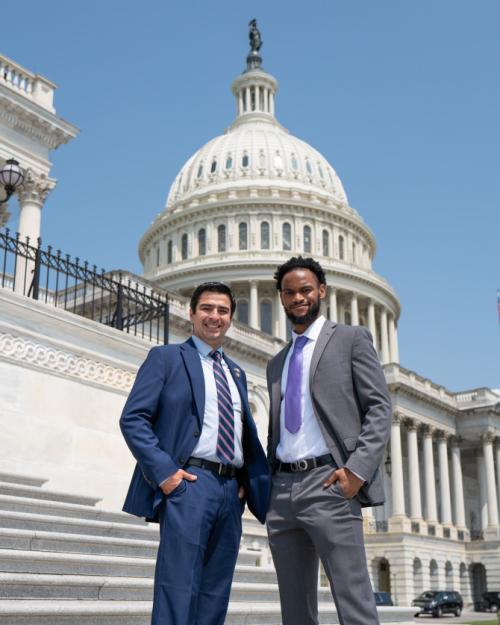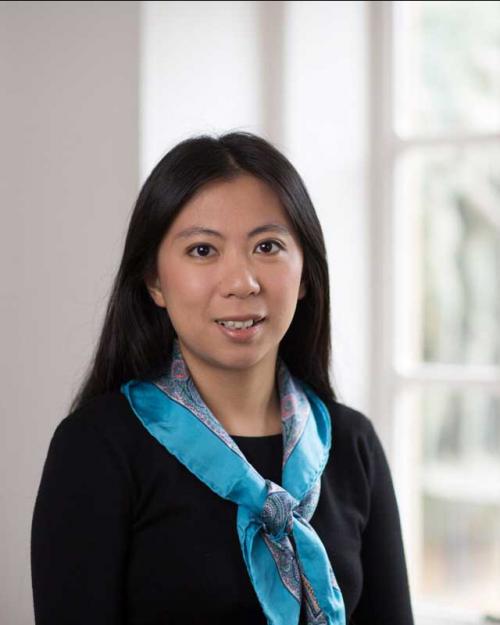Baobao Zhang, Klarman Postdoctoral Fellow in government in the College of Arts and Sciences, has been named a CIFAR Azrieli Global Scholar. CIFAR is a Canadian-based global research organization.
One of 19 early-career scholars from eight countries to receive the grant for 2021-2023, Zhang will investigate challenges governments face when addressing public perceptions of inequalities brought about by new technologies under CIFAR’s “Innovation, Equity & the Future of Prosperity” research program.
“Experts and the public alike anticipate that new technologies could make society more unequal,” Zhang said. “My research focuses on how mass politics can make it hard for governments to address these inequalities, such as the political challenges of enacting policies to help workers harmed by workplace automation.”
Based in the Department of Government, College of Arts and Sciences, Zhang researches trust in digital technology and governance of artificial intelligence (AI) through an empirical social science approach. She works closely with Sarah Kreps, the John L. Wetherill Professor of government, on technology policy.
In the past year, Zhang and Kreps published research on Americans’ perceptions of privacy and surveillance related to contact tracing technology introduced in the COVID-19 pandemic. They found Americans to be deeply skeptical of contact tracing technology, but that support for digital contact tracing increased with stronger privacy protections. This research was used by a U.S. Senate report in July 2020.
Zhang is also a member of Cornell’s Tech Policy Lab, which Kreps launched in 2020. In fall 2021, she will start as an assistant professor of Political Science at the Maxwell School of Citizenship and Public Affairs at Syracuse University.
The CIFAR Azrieli Global Scholars program supports outstanding early-career researchers through mentorship, a global network, professional skills development and $100,000 (Canadian) in unrestricted research support for two years. Scholars in this year’s cohort will do natural and social sciences research in questions ranging from migration to planetary geothermal systems and from climate politics to human fungal infections.
Elizabeth Johnson, assistant professor of molecular nutrition in the Division of Nutritional Sciences in the College of Agriculture and Life Sciences, is also among this year’s CIFAR Azrieli Global Scholars.
Read the story in the Cornell Chronicle.




